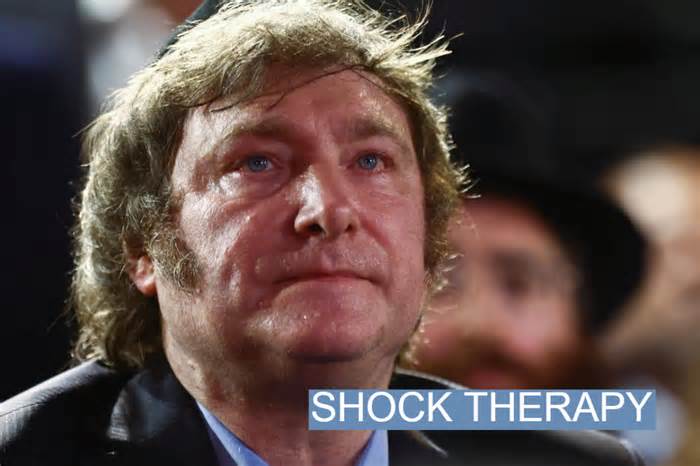n n n ‘.concat(e.i18n.t(“search.voice.recognition_retry”),’n
Perspectives from La Nación, Fundar, Bloomberg
Argentina devalued the peso by 50% on Tuesday, to around 800 to the dollar, the first “shock therapy” measure ordered by new President Javier Milei as he works to alleviate the country’s economic crisis.
Inflation is expected to increase and the economic situation will worsen in the coming months, Economic Minister Luis Caputo acknowledged in a televised address, but the plan is crucial so that agribusiness and industrial sectors truly have “the appropriate incentives to increase production,” he said. To offset some of the costs for the more than 40% of Argentines living in poverty, Caputo said the value of the government-provided food card would rise by 50 per cent and child benefits would double.
The International Monetary Fund welcomed the changes, saying the measures would “help stabilize the economy. “
The social welfare systems that Milei has pledged to build during the transition can only provide a limited safety net, critics say, as only 60% of the poorest 10% are actually covered by food card and family allowance schemes. The remaining 40% in the face of such a shock?, asked an analyst from the economic think tank Fundar. Most of the country’s poor enjoy a separate social benefits program that will not be strengthened in reaction to the devaluation, the country’s former minister of social progress told Página 12, a left-wing Argentine newspaper.
Argentine bonds hit a two-year high after the announcement, while other stocks also rose as investors now that the country has “a path to restart growth, however painful the procedure may be for ordinary Argentines,” Bloomberg reports, though some investors still feel that the surprise deal hasn’t “gone far enough. “Observers are also concerned about the political impasse on long-term reforms, given that Milei’s coalition does not hold a majority of seats in Congress.
Markets had predicted a devaluation of the peso, but not such a drastic and rapid relief, a monetary strategist told La Nacion newspaper, which would dampen public demand for foreign currency. Along with an easing in export prices also brought about by the devaluation, the country will begin to save the dollars needed to pay off its foreign debt. But the “key to success” is for the country’s central bank to start buying dollars, the strategist said.

